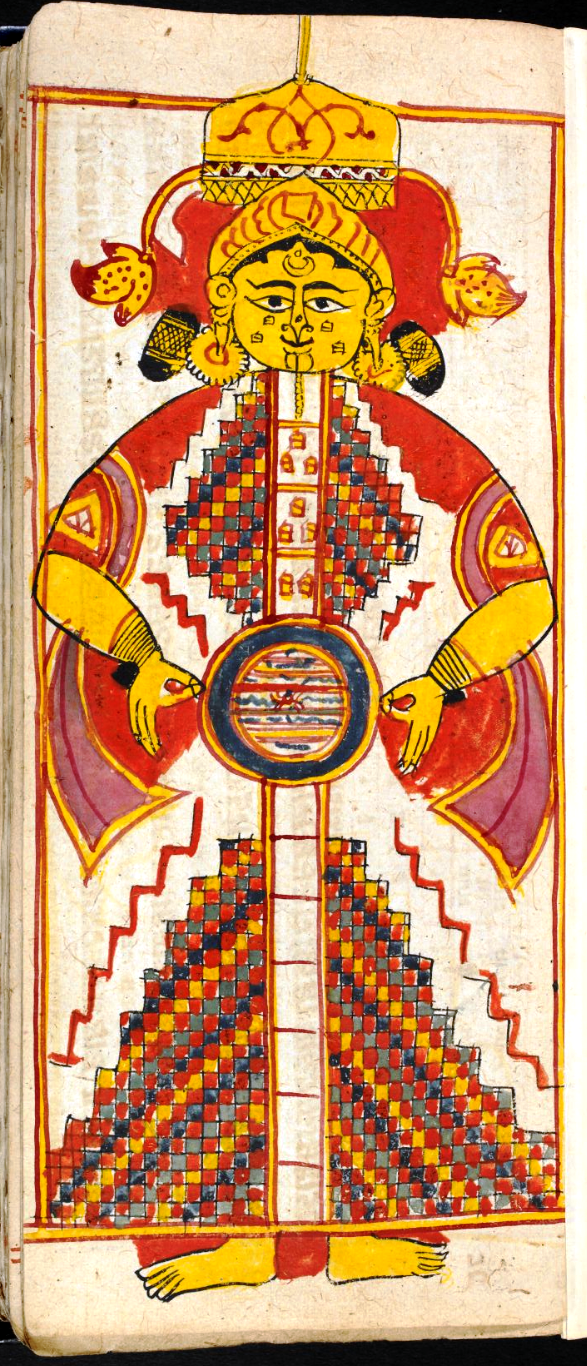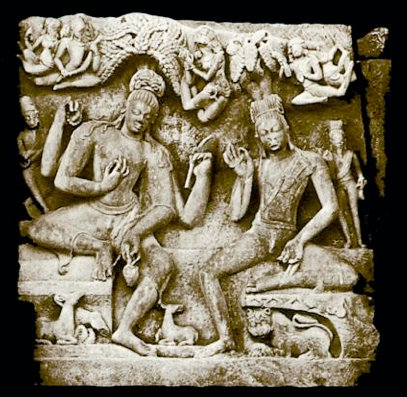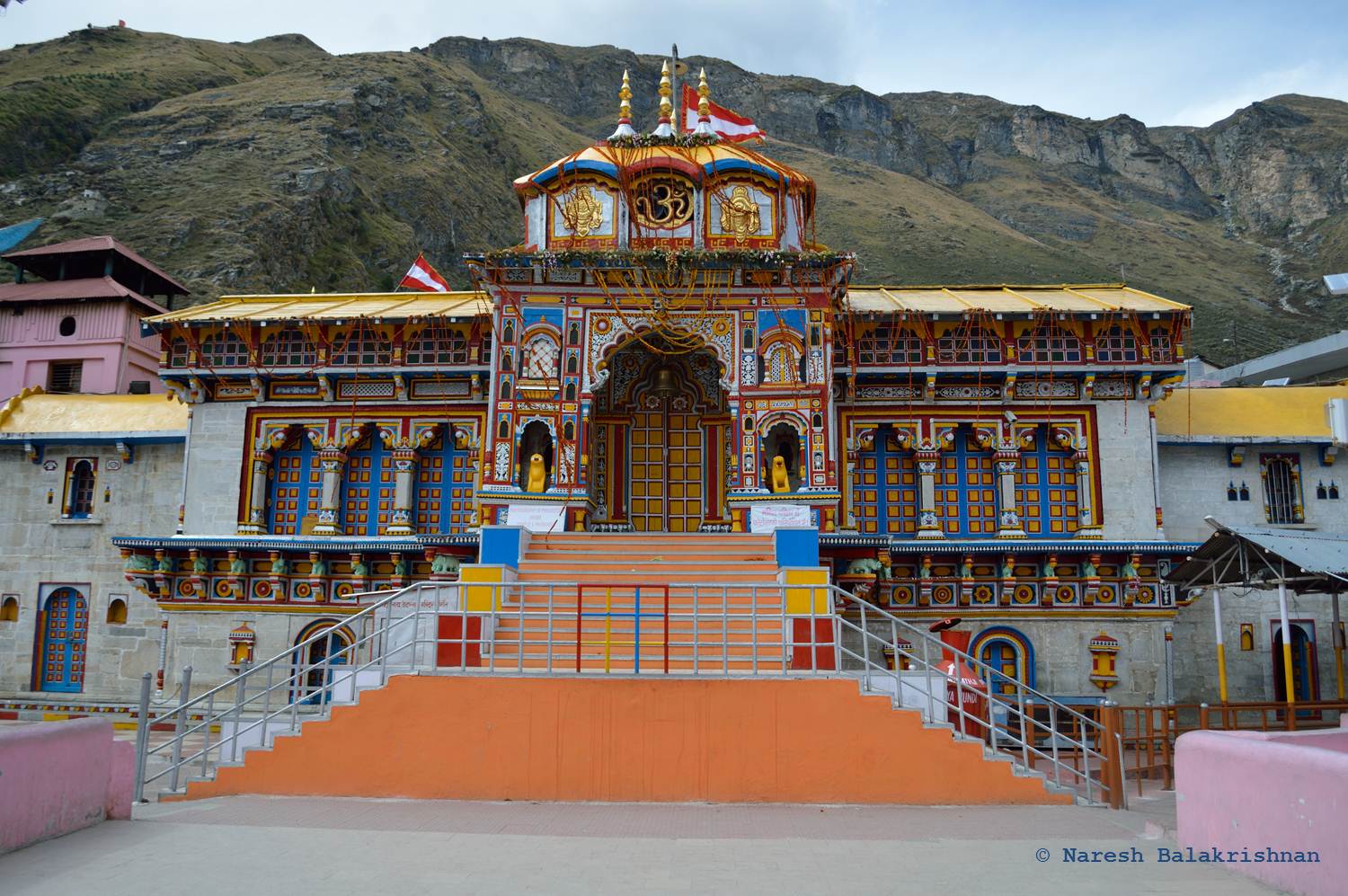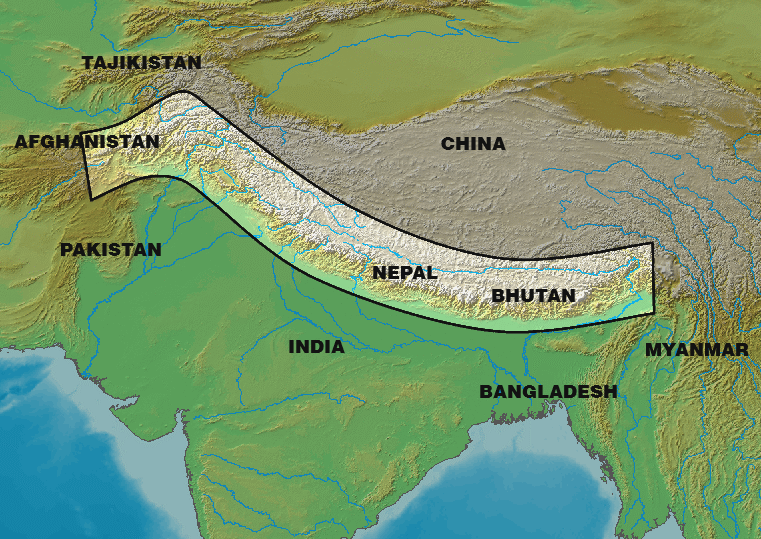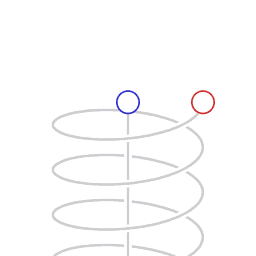|
Kakudmi
Kakudmi (nominative case, stem Kakudmin), sometimes also called Raivata, is a character within Hindu Mythology. Kakudmi was the King of Kusasthali, son of Revata, and father of Revati, who married Balarama. Within Hinduism, his account is given within a number of existing texts such as the Mahabharata, the Harivaṃśa, the Devi Bhagavatam and the Bhagavata Purana. Lineage Kakudmi was a descendant of Surya, the deity of the Sun. Surya's son was Vaivasvata Manu. Vaivasvata Manu had powerful son named Ikshvaku. Ikshvaku had one hundred sons of whom Vikuksi was the eldest. Vikuksi had many sons of whom S'aryâti was one. King S'aryâti had three sons, namely Uttânabarhi, Ânarta and Bhûrishena. Ânarta's eldest son was Revata. Revata constructed the city of Kusasthali and ruled from there. Revata had one hundred sons of whom Kakudmi (also called Raivata, son of Revata) was the eldest. Personality Kakudmi was of pure character and a benevolent ruler. He had one very beauti ... [...More Info...] [...Related Items...] OR: [Wikipedia] [Google] [Baidu] |
Revati
Revati (रेवती) is a goddess featured in Hindu scriptures. She is the daughter of King Kakudmi and the consort of Balarama, the elder brother of Krishna, and one of the Dashavatara. Her account is given within a number of Hindu texts such as the ''Mahabharata'' and ''Bhagavata Purana''. Origin Revati has her origins as a mother goddess who was capable of great destruction. When Dirgajihvi, a demon, threatened to attack the devas, the gods sought the assistance of Skanda, who in turn requested Revati to fight the former. Taking the form of the vixen Shalavriki, Revati wrought havoc in the demon army to the extent that the demons sought refuge in the wombs of human women. In response, the goddess took the Jataharini form and attacked the demons before their conception, cleansing the women of their wickedness. According to the Devi Bhagavata Purana, Revati is associated with Shasthi Devi, an aspect of Prakriti. She was revered as the deity of children who was worship ... [...More Info...] [...Related Items...] OR: [Wikipedia] [Google] [Baidu] |
Time Travel
Time travel is the concept of movement between certain points in time, analogous to movement between different points in space by an object or a person, typically with the use of a hypothetical device known as a time machine. Time travel is a widely recognized concept in philosophy and fiction, particularly science fiction. The idea of a time machine was popularized by H. G. Wells' 1895 novel '' The Time Machine''. It is uncertain if time travel to the past is physically possible, and such travel, if at all feasible, may give rise to questions of causality. Forward time travel, outside the usual sense of the perception of time, is an extensively observed phenomenon and well-understood within the framework of special relativity and general relativity. However, making one body advance or delay more than a few milliseconds compared to another body is not feasible with current technology. As for backward time travel, it is possible to find solutions in general relativity that al ... [...More Info...] [...Related Items...] OR: [Wikipedia] [Google] [Baidu] |
Balarama
Balarama ( Sanskrit: बलराम, IAST: ''Balarāma'') is a Hindu god and the elder brother of Krishna. He is particularly significant in the Jagannath tradition, as one of the triad deities. He is also known as Haladhara, Halayudha, Baladeva, Balabhadra, and Sankarshana. The first two epithets associate him with ''hala'' (''langala'', "plough") from his strong associations with farming and farmers, as the deity who used farm equipment as weapons when needed, and the next two refer to his strength. Balarama is sometimes described as incarnation of Shesha, the serpent associated with the deity Vishnu; Krishna is regarded as an incarnation of Vishnu. Some traditions regard him as one of the 10 principal avatars of Vishnu himself. Balarama's significance in Indian culture has ancient roots. His image in artwork is dated to around the start of the common era, and in coins dated to the second-century BCE. In Jainism, he is known as Baladeva, and has been a historically sig ... [...More Info...] [...Related Items...] OR: [Wikipedia] [Google] [Baidu] |
Yugas
A ''yuga'', in Hinduism, is generally used to indicate an age of time. In the ''Rigveda'', a ''yuga'' refers to generations, a long period, a very brief period, or a yoke (joining of two things). In the ''Mahabharata'', the words ''yuga'' and ''kalpa'' (a day of Brahma) are used interchangeably to describe the cycle of creation and destruction. The names "''Yuga''" and "Age" commonly denote a (pronounced ''Chatur Yuga''), a cycle of four world ages, for example, in the ''Surya Siddhanta'' and ''Bhagavad Gita'' (part of the ''Mahabharata''), unless expressly limited by the name of one of its minor ages: '' Krita (Satya) Yuga'', ''Treta Yuga'', ''Dvapara Yuga'', or ''Kali Yuga''. Etymology ''Yuga'' ( sa, युग) means "a yoke" (joining of two things), "generations", or "a period of time" such as an age, where its archaic spelling is ''yug'', with other forms of ''yugam'', , and ''yuge'', derived from ''yuj'' ( sa, युज्, , to join or yoke), believed derived from ' ( ... [...More Info...] [...Related Items...] OR: [Wikipedia] [Google] [Baidu] |
Time Dilation
In physics and relativity, time dilation is the difference in the elapsed time as measured by two clocks. It is either due to a relative velocity between them ( special relativistic "kinetic" time dilation) or to a difference in gravitational potential between their locations ( general relativistic gravitational time dilation). When unspecified, "time dilation" usually refers to the effect due to velocity. After compensating for varying signal delays due to the changing distance between an observer and a moving clock (i.e. Doppler effect), the observer will measure the moving clock as ticking slower than a clock that is at rest in the observer's own reference frame. In addition, a clock that is close to a massive body (and which therefore is at lower gravitational potential) will record less elapsed time than a clock situated further from the said massive body (and which is at a higher gravitational potential). These predictions of the theory of relativity have been repeated ... [...More Info...] [...Related Items...] OR: [Wikipedia] [Google] [Baidu] |
Muchukunda
In Hindu history, Muchukunda (), the son of King Mandhata, and brother of Ambarisha, is an Ikshvaku ( Suryavamsha) king. Battle with the asuras Once, in a battle, the devas were defeated by the asuras. Tormented by arrows, they sought help from king Muchukunda. King Muchukunda agreed to help them and fought against the asuras for a long time. Since the devas did not have an able commander, king Muchukunda protected them against the onslaught by asuras, until the devas got an able commander like Kartikeya, the son of Shiva. Then Indra said to the king Muchukunda, "O king, we, the deities are indebted to you for the help and protection which you have given us, by sacrificing your own family life. Here in the heaven, one year equals three hundred and sixty years of the earth. Since, it has been a long time, there is no sign of your kingdom and family because it has been destroyed with the passage of time. You came here in Treta Yuga and now its Dwapara Yuga on earth.We are happy and ... [...More Info...] [...Related Items...] OR: [Wikipedia] [Google] [Baidu] |
Loka
Loka () is a concept in Hinduism and other Indian religions, that may be translated as a planet, the universe, a plane, or a realm of existence. In some philosophies, it may also be interpreted as a mental state that one can experience. A primary concept in several Indian religions is the idea that different lokas are home to various divine beings, and one takes birth in such realms based on their karma. Hinduism Three lokas The most common classification of lokas in Hinduism is the Trailokya, or the three worlds. The concept of the three worlds has a number of different interpretations in Hindu cosmology. In Hindu literature, the three worlds refer to either the earth (Bhuloka), heaven ( Svarga), and hell (Naraka), or the earth (Bhuloka), heaven (Svarga), and the netherworld (Patala) Bhuloka In the Narada Purana, Bhuloka is identified with the planet Earth, the world of human beings. It is described to be split up into seven regions, referred to as dvipas (islands). T ... [...More Info...] [...Related Items...] OR: [Wikipedia] [Google] [Baidu] |
Yuga
A ''yuga'', in Hinduism, is generally used to indicate an age of time. In the ''Rigveda'', a ''yuga'' refers to generations, a long period, a very brief period, or a yoke (joining of two things). In the ''Mahabharata'', the words ''yuga'' and ''kalpa'' (a day of Brahma) are used interchangeably to describe the cycle of creation and destruction. The names "''Yuga''" and "Age" commonly denote a (pronounced ''Chatur Yuga''), a cycle of four world ages, for example, in the ''Surya Siddhanta'' and ''Bhagavad Gita'' (part of the ''Mahabharata''), unless expressly limited by the name of one of its minor ages: '' Krita (Satya) Yuga'', ''Treta Yuga'', ''Dvapara Yuga'', or ''Kali Yuga''. Etymology ''Yuga'' ( sa, युग) means "a yoke" (joining of two things), "generations", or "a period of time" such as an age, where its archaic spelling is ''yug'', with other forms of ''yugam'', , and ''yuge'', derived from ''yuj'' ( sa, युज्, , to join or yoke), believed derived from ' ( ... [...More Info...] [...Related Items...] OR: [Wikipedia] [Google] [Baidu] |
Nara-Narayana
Naranarayana (), also rendered Nara-Narayana, is a Hindu duo of sage-brothers. Generally regarded to be the partial-incarnation (aṃśa-avatara) of the preserver deity, Vishnu, on earth, Nara-Narayana are described to be the sons of Dharma and Ahimsa. The Hindu scripture ''Mahabharata'' identifies the prince Arjuna with Nara, and the deity Krishna with Narayana. The legend of Nara-Narayana is also told in the scripture ''Bhagavata Purana''. Hindus believe that the pair dwells at Badrinath, where their most important temple stands. Etymology The name "Nara-Narayana" can be broken into two Sanskrit terms, ''Nara'' and ''Narayana''. Nara means male being, and Narayana refers to the name of the deity. Monier-Williams dictionary says Nara is "the primeval Man or eternal Spirit pervading the universe always associated with Narayana, "son of the primeval man". In epic poetry, they are the sons of Dharma by Murti or Ahimsa, and emanations of Vishnu, Arjuna being identified with ... [...More Info...] [...Related Items...] OR: [Wikipedia] [Google] [Baidu] |
Badrinath
Badrinath is a town and nagar panchayat in Chamoli district in the state of Uttarakhand, India. A Hindu holy place, it is one of the four sites in India's Char Dham pilgrimage and is also part of India's Chota Char Dham pilgrimage circuit. It gets its name from the Badrinath Temple. Etymology ''Badri'' refers to "Badrayana", another name for Rishi Ved Vyas who is believed to have resided in this region. It is also known as "Badarikashrama". History Badrinath was re-established as a major pilgrimage site by Adi Shankara in the 8th century. In earlier days, pilgrims used to walk hundreds of miles to visit the Badrinath temple. The temple has been repeatedly destroyed by earthquakes and avalanches. As late as the First World War, the town consisted only of the 20-odd huts used by the temple's staff, but the site drew thousands each year and up to 50,000 on its duodecennial festivals (every twelve years). In recent years its popularity has increased still more, with an es ... [...More Info...] [...Related Items...] OR: [Wikipedia] [Google] [Baidu] |
Himalayas
The Himalayas, or Himalaya (; ; ), is a mountain range in Asia, separating the plains of the Indian subcontinent from the Tibetan Plateau. The range has some of the planet's highest peaks, including the very highest, Mount Everest. Over 100 peaks exceeding in elevation lie in the Himalayas. By contrast, the highest peak outside Asia (Aconcagua, in the Andes) is tall. The Himalayas abut or cross five countries: Bhutan, India, Nepal, China, and Pakistan. The sovereignty of the range in the Kashmir region is disputed among India, Pakistan, and China. The Himalayan range is bordered on the northwest by the Karakoram and Hindu Kush ranges, on the north by the Tibetan Plateau, and on the south by the Indo-Gangetic Plain. Some of the world's major rivers, the Indus, the Ganges, and the Tsangpo– Brahmaputra, rise in the vicinity of the Himalayas, and their combined drainage basin is home to some 600 million people; 53 million people live in the Himalayas. The Himalayas ... [...More Info...] [...Related Items...] OR: [Wikipedia] [Google] [Baidu] |
Time Dilation
In physics and relativity, time dilation is the difference in the elapsed time as measured by two clocks. It is either due to a relative velocity between them ( special relativistic "kinetic" time dilation) or to a difference in gravitational potential between their locations ( general relativistic gravitational time dilation). When unspecified, "time dilation" usually refers to the effect due to velocity. After compensating for varying signal delays due to the changing distance between an observer and a moving clock (i.e. Doppler effect), the observer will measure the moving clock as ticking slower than a clock that is at rest in the observer's own reference frame. In addition, a clock that is close to a massive body (and which therefore is at lower gravitational potential) will record less elapsed time than a clock situated further from the said massive body (and which is at a higher gravitational potential). These predictions of the theory of relativity have been repeated ... [...More Info...] [...Related Items...] OR: [Wikipedia] [Google] [Baidu] |




